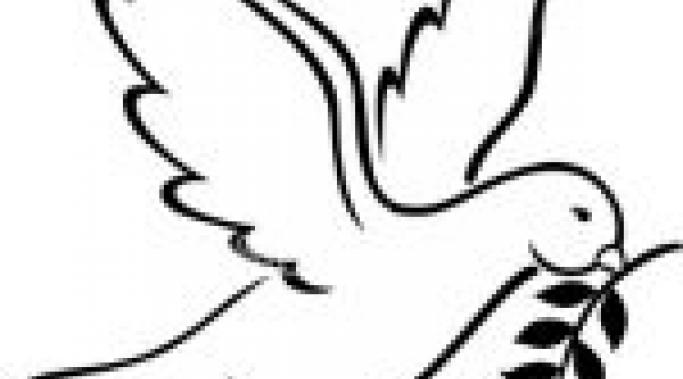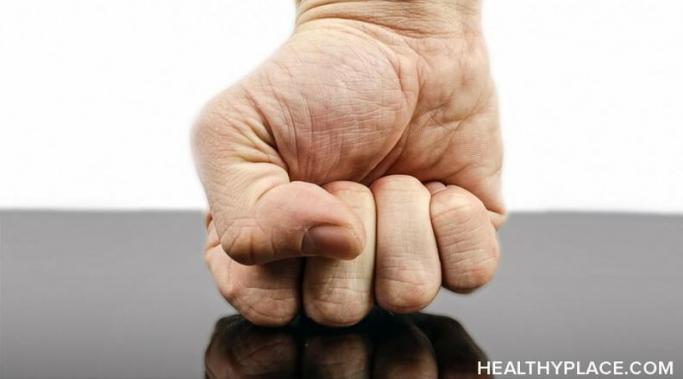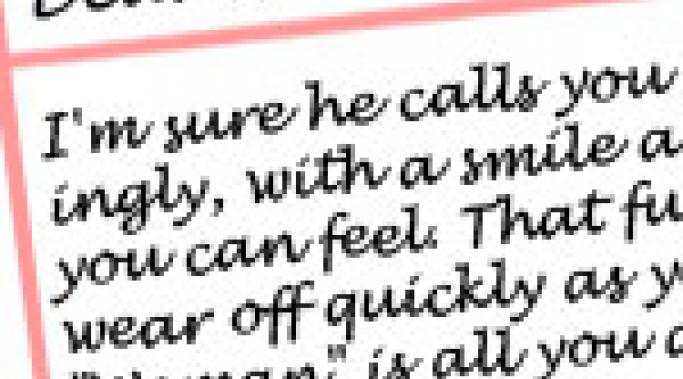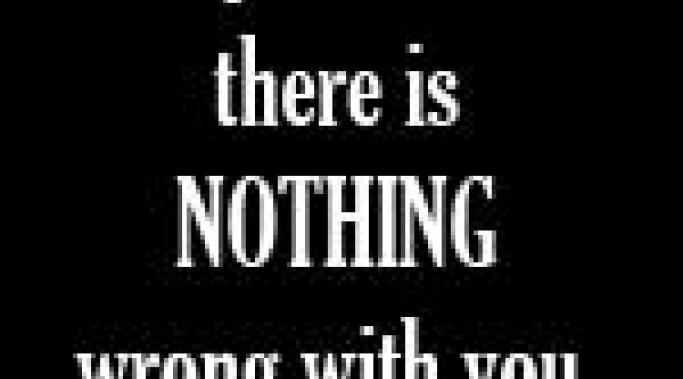What does verbal abuse sound like? The tone and content varies from abuser to abuser, but the words effect the victim in similar ways. Victims hear horrible things from their abuser and they feel small, withdrawn, angry, helpless, sad, shame, and a hundred other horrible emotions - sometimes all at once.
Signs and Symptoms of Abuse
When I think of intimacy, I think of the ability to share personal insights or facts with another person who will keep them between the two of us and hold them gently. Holding my personal fears, joys, mistakes and successes gently is important to me. When my abuser would manipulate the intimate facts of me to control me, I felt he betrayed me just as if he had stood on a rooftop and blurted private facts of me into a bullhorn.
And yet, although my intimacies often came back to bite me in the butt, I kept sharing them with him! Why? Because I thought that sharing brought closeness, appreciation, understanding, and love. I thought I could force him to love me the way I wanted by being completely open and honest.
Life after abuse surpasses the definition of peaceful. There is no one but me to tell me what to do or how to do it.
Trust eludes victims of abuse during their abusive relationship. As much as I wanted to trust my ex-abuser--and told others that I could trust him--it just wasn't so (Trust Issues and Abusive Relationships). I thought if I was trustworthy and expected to be able to trust him, then he would magically become trustworthy and our relationship would spring to life. That never happened because you cannot ever trust an abuser with your heart. But you can learn to trust after your abusive relationship.
Kristen read the post comments for Abuse Victims and Abusive Anger and asked "How do you prevent creating friendships based on a power-control dynamic and how do you escape the anger that fuels them?"
Wow. Kristen is headed for success in her relationships because she is asking great questions.
The story I want to tell you today happened between my ex and me over two years ago when we were still together. At the time, I knew he was abusing me. I realized that there was little hope that he would change. I didn't want to leave my marriage, but I was beginning to think there was no real marriage to leave anyway.
Looking back, I remember my internal struggle to find an elusive peace. I longed for a partner who loved me and would work with me through life's trials and celebrate its joys. I so wanted a normal conversation, a nice conversation without the abusive junk lurking underneath the surface. I was hoping my life away.
If you see yourself in the following story, please think long and hard about whether you want to wait it out to see if your partner decides to change. Remember that the abuser finds great benefit in abusing, otherwise s/he would have changed long ago.
It's not my place to tell her about what abuse she has to look forward to in her new relationship with my ex-abuser. It's none of my business that, from this distance, I can clearly sense what is happening. If I approached her, she would probably get mad at me.
I'm sure he's told her what a head-case I am, warned her to limit her contact with me. At the very least, he's agreed with her perspective on how crazy I must be to have left him, that it takes two to tango, that I have baggage I didn't work through in all those years we were together.
But if I were to write her a letter, this is how it would go:
Mystery surrounds victims of domestic violence and abuse. “Why does she stay?” tops the list of most asked questions when she’s in the relationship and “What is wrong with her?” is the often unspoken follow-up. It seems to me that most people who study domestic violence victims ask “What is wrong with her?” at the top of their research. They seem to forget that it takes two people to create an abusive relationship.
I guess they think they’ve got the abuser pegged. He’s a narcissist, addict, chauvinist, controller, or has an anger problem or self-esteem issues. Pick a personality or mood disorder and maybe he’s got it. Case closed - on to their victims.
His comment came out of the blue as he readied himself for work. "Some people don't think," he stated calmly. My mind raced to figure out what he was talking about. If I were in a normal relationship, I would have simply asked, "What do you mean, honey?" But I wasn't in a normal relationship.
During the few seconds it took me to connect the dots between his statement and what he really meant, he didn't say another word. He gave me the courtesy of remaining silent as my mind raced to find a way to avoid a fight that evening upon his return.
About 6 months after I left my abusive husband, I met a man who I've come to love. The loving part was easy - he's a complete turn-around from my ex-husband. My new love treats me kindly, he cooks for me and my children, he's generous with his time and affection. He tells me I'm beautiful and doesn't expect me to fall over myself with gratefulness that he said something nice to me! Perhaps better than those cosmetic qualities, he wants to hear my thoughts, he asks me how I feel, and, after I tell him these once-guarded intimacies, he does not tell me how misguided and delusional I am.









